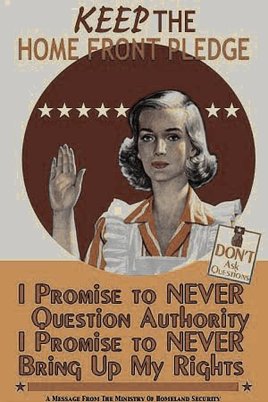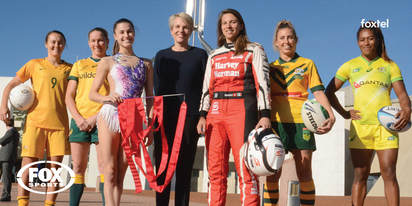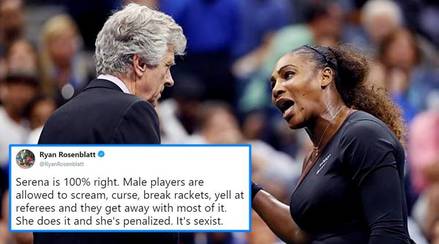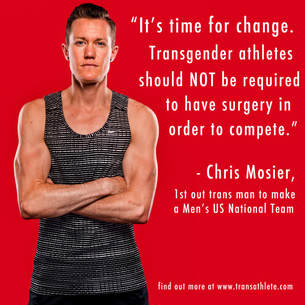AuthorA 20 year old fitness enthusiast and dedicated Olympic style weightlifter. I am a Level 2 Weightlifting coach, Powerlifter, and non-competitive Irish dancer. I'm determined to live a healthier lifestyle and take care of my body whilst influencing other young people to do so. I never doubt my ability to achieve something; I just change what I'm doing until I succeed. Archives
May 2021
|
Back to Blog
Gender inequality within sport17/9/2018 Within this blog post, I will be discussing a mix of my opinions, some stereotypes and factual information based around the topic of gender inequality within sport. I thought this topic would be relevant since Serena Williams was treated wrongly during a recent Tennis game of hers. I have touched upon this topic before, but only a small section of the topics surrounding gender inequality. Please continue reading to find out more about these individual topics. The history of Women in sport Going back to the past, Women first were allowed to compete in the Olympic games in 1900 but towards the end of the 19th century began to partake in sports that were identified as ‘feminine’ such as Tennis, Golf, Archery and Figure Skating. As a Women who currently competes in Olympic-style Weightlifting competitions, it is interesting to know that the first feature of Weightlifting within the Olympic games was in 1896, it was only until the year 2000 that Women were allowed to compete in the Olympics as Weightlifters. Although in 1986 there were some championships which featured Women. Women were kept out of the sport for so long because it was viewed that the sport was made for Men and that Women shouldn’t be perceived as strong and muscular. Even dating back to war times, Women were seen as the stay at home Mother who would cook, clean and be the perfect housewife. Young girls during this period would learn how to make clothes and look after children, whereas young boys would be introduced to sports and more fun activities. If we're also looking back at the attitudes of Women, it is known that some Women became 'Flappers' and rebelled against the modesty projected onto them by Men. One Woman dance crazes (The Charleston) and more individuality revolving around Women's fashion was soon developed from there. Attitudes towards Women in sport Nowadays there are many attitudes towards Women participating in sport or certain types of sports. It mainly depends upon what sport it is and who you’re asking. I have noticed myself that some of the elderly part of society can perceive that Women should only partake in certain sports that are deemed more feminine and ‘suitable for the gender’, probably because Women had less rights back in their younger days so that is all that they have been brought up to think of. It is still relevant that nowadays Women are subsequently less than Men whether that involves sports or not. Some examples of sports that aren’t as socially acceptable for Women to partake in than Men are: Football, Rugby, Olympic Weightlifting, Boxing, Wrestling, Darts, Shooting, Formula one driving, Cricket etc. Whether this is because Men are deemed to be stronger than Women and therefore are bigger and are more able to excel within the sport (because of higher levels testosterone), or it is just because the general public dislike the Female gender being able to participate and compete in these sports. Thankfully, Women can still partake in these sports but sometimes it isn’t as recognized nor as popular as Men who participate in the same activity. It has always been encouraged that Boys were tougher than Girls and therefore were more encouraged to partake in sports than Girls were. Women seem to team up and stick up for each other when it can come down to being faced with inequality. In this generation there are sites such as thisgirlcan.co.uk which do help to promote to change the attitude that Women face in the sports industry. Examples of inequality towards Women in sport Although people are more open to accepting that sports aren’t just for one gender, there are examples of situations which suggest that sexism within the sports industry hasn’t quite fizzled out yet (the $33 million pay gap between Men and Women in football is a good example). Lets start with the smallest issue which involves Women in sport. In a Tennis game, Men play to the best of 5 sets whereas Women will only play to the best of 3 sets. Although this is seen as ‘traditional’, myself and others would view this as discouraging Women from being able to play as proficiently as Men. Therefore this would suggest that they are only expected to play 3 sets and may not be aerobically able to play to the higher standard that Men can apparently play at. Upon the topic of Tennis, more recently Serena Williams was treated unfairly by the umpire to which if a Male Tennis player was to do the same thing that Serena did, he would not be given the same consequence. Yes, Serena got upset and angry during the game, but if a Male Tennis player did the same, I guarantee nobody would have made a racist and sexist comic about the incident aimed at the person. In comparison to this, there are worse cases such as another recent issue involving a Female Olympic 800m champion. In several articles it is said that the IAAF have set new rules regarding the testosterone levels of Female athletes which means that it restricts Women with higher levels of the hormone from competing without having to take substances to reduce this factor. Although the amount that she has is over the ‘limit for Women’ and ‘makes her at advantage compared to the other athletes’. This should not be an issue, as if it were for Males the IAAF may have less of a concern to alter the rules. Examples of inequality towards Men within sport.It has more than once popped into my head that inequality revolving around Men in sport isn’t brought up enough. Although it is more common for Men to participate in sports than Women without a sense of inequality, there are still some areas of sports and activities that are deemed to be ‘too feminine’ or ‘make Men look weak’. Take ballet dance, gymnastics and netball for example. Sports that you may associate with female teams or athletes and not often with the male gender. Not only can inequality with certain sports be an issue for Men, but expectations that society as a whole can pressure upon Male athletes or sportsmen. Since it is common for Men to take part in sports, there can be higher expectations of them to perform well, to look a certain way or have a certain level of ability and expertise. For instance, if you are an Olympic Weightlifter and Male, you may be expected to be tall and muscular, whereas sometimes it is the short or skinny lifters that are stronger. The same with Rugby players, it may be a common stereotype that Rugby players are massively muscular but in fact skinny or leaner Men can be great Rugby players as wingers who will do most of the running to score tries. Male fitness magazines or online articles set high expectations for Men in sport, which isn’t always a trait that all Men will have. How can we tell young girls to strive to take part in any sport they want to but not say the exact same thing to young boys? Transgender and Non binary* genders within sport. In an article on Mashable.com it states ‘An athlete's sexual orientation doesn't challenge the gender binary in sports - gay men and lesbian women can still compete in their separate, sex-segregated divisions.’ Therefore, it makes me wonder how come people who are transgender or non binary are sometimes either made to compete in the category which fits their gender assigned at birth or not to compete at all. It is a shame that this could restrict very talented and hardworking people purely because in some competitions the categories are sex-segregated with only a Male or Female category choice. Some people have argued that it would be unfair for transgender people to compete within the category that they identify as because of higher or lower testosterone levels (meaning an advantage or disadvantage). There are ways to go around this by creating more than two gender categories or even measuring testosterone levels for some sports and categorizing the athletes in that way. It is just unfair for someone to be unable to compete in their sport merely because of how they identify. Why should they have to compete as the gender that they do not feel comfortable being. *Someone who identifies as neither Female or Male. Thank you for reading this blog post, I will cover more topics similar to these in the near future.
0 Comments
Read More
Your comment will be posted after it is approved.
Leave a Reply. |